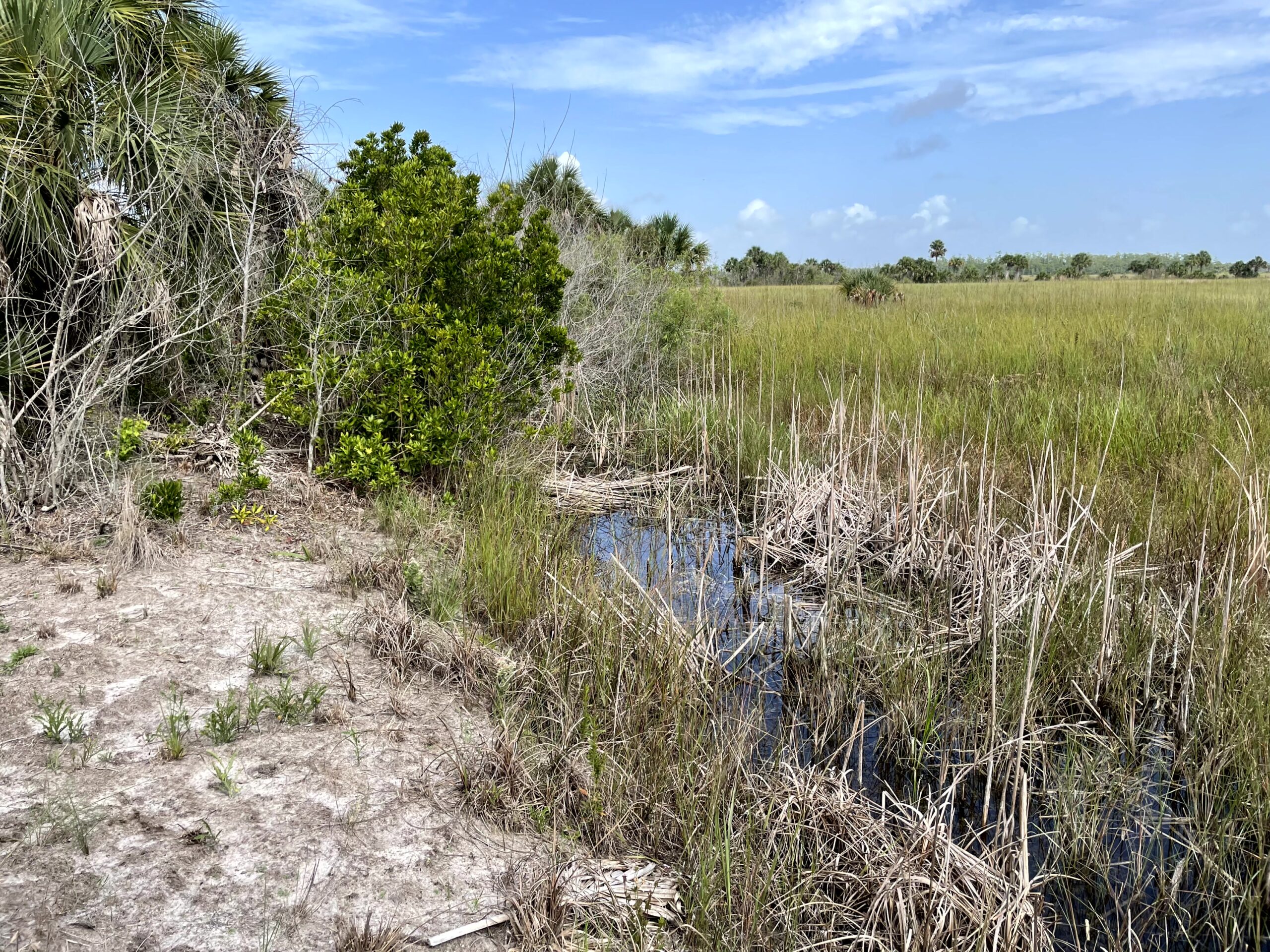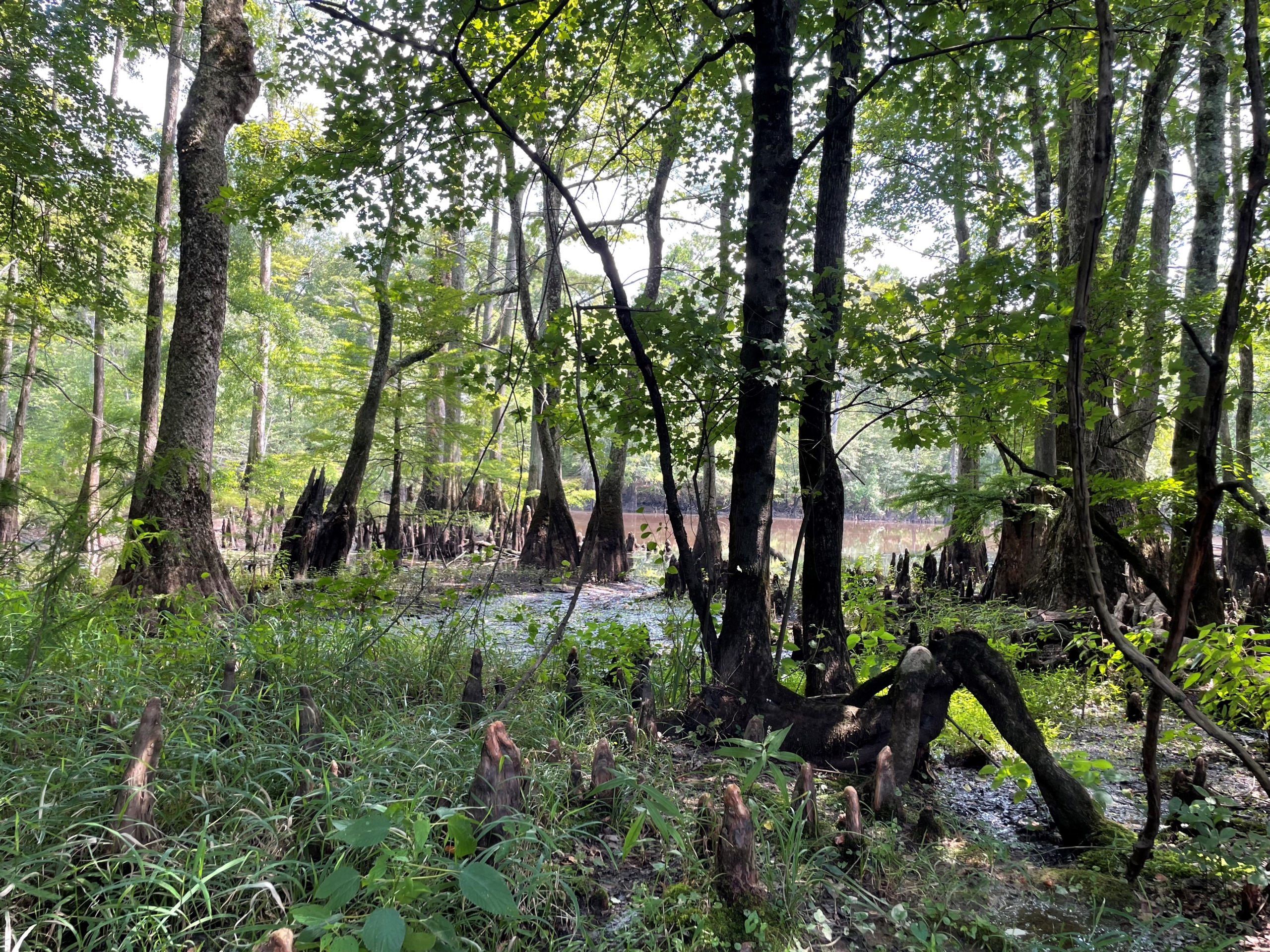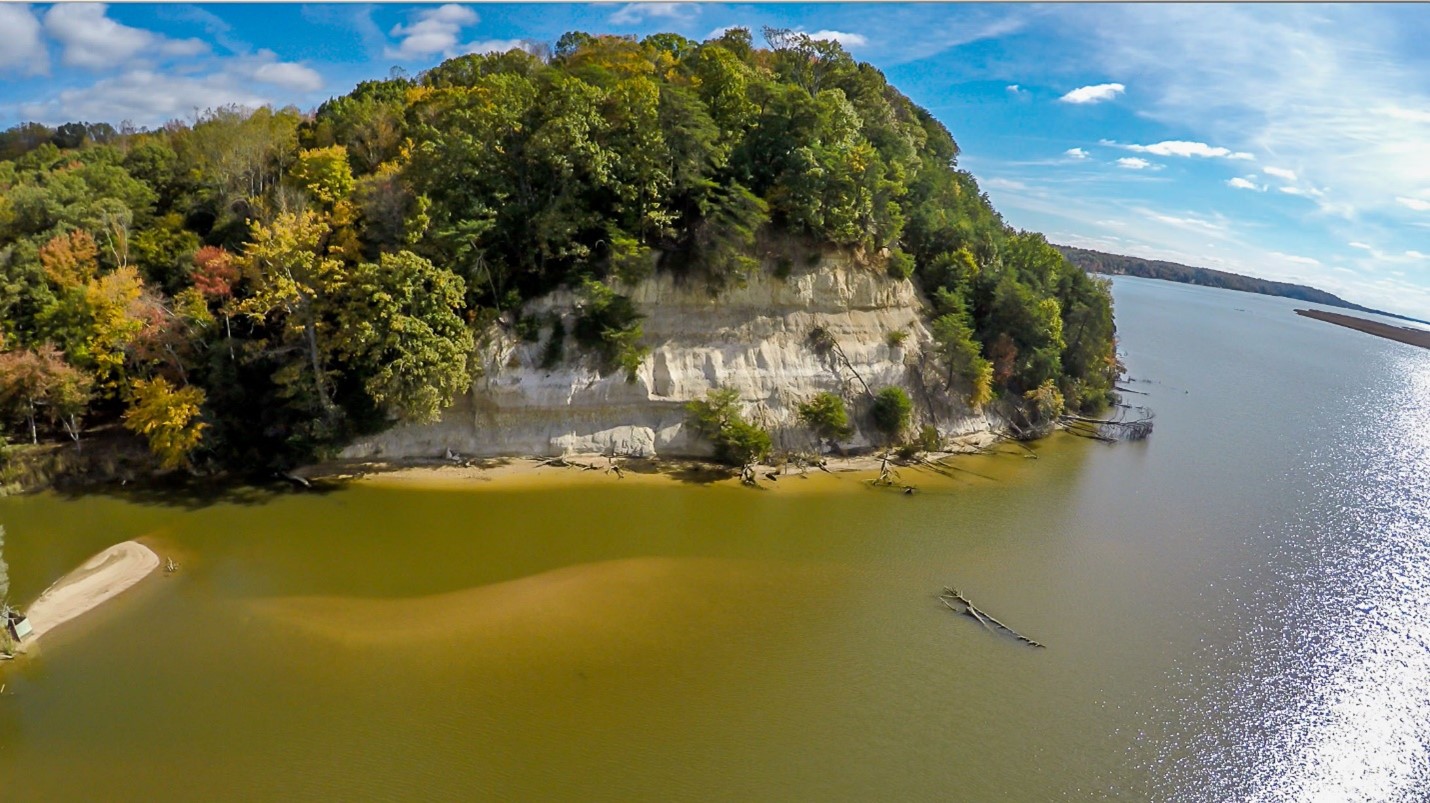It Was a Great Year for Salt Marsh Conservation Funding!
Several new or ongoing grants were secured to assist ACJV partner efforts to conserve land, implement restoration projects, and test promising management actions outlined in our conservation plans. For the third year in a row, we expect that every National Coastal Wetland Conservation Grant proposal submitted by ACJV partners will be funded! Millions of additional project dollars from competitive funding sources were raised by our many partners working throughout the Atlantic coast. Read more about ACJV-facilitated funding successes below.
National Fish and Wildlife Foundation (NFWF):
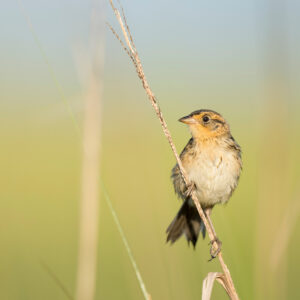
These projects help protect and restore habitat for the Saltmarsh Sparrow. Ray Hennessy
National Coastal Resiliency Fund – The ACJV provided early project coordination and mapmaking for a successful $6M proposal led by Friends of Herring River to support multiple local restoration projects on Cape Cod in Massachusetts. Work will address salt marsh loss and degradation through the use of runnels, ditch remediation, removal of tidal restrictions, crab damage mitigation and redistribution of sediment.
Delaware Watershed Conservation Fund – The ACJV has received funds to support 1) Saltmarsh Sparrow monitoring in 2024 and 2025; 2) analyses of the completed data by academic partners to assess how restoration may impact Saltmarsh Sparrow populations; and 3) development of a change analysis tool for vegetation communities in coastal marshes. We then plan to work with partners to use this tool to model at-risk bird populations (Saltmarsh Sparrow, American Oystercatcher) within the Delaware Watershed as well as regionally (Maine to Virginia). All of these actions will support planning for future restoration efforts.
Keystone Initiative:
With funds from the Bipartisan Infrastructure Law and Inflation Reduction Act programs, the Department of the Interior is providing funding to restore healthy lands and waters and to address climate impacts through coordination across DOI agencies through the Keystone Initiative. One of the seven priorities of this Keystone funding is coastal salt marsh. Prior rounds of funding have supported salt marsh restoration projects in MD and VA as well as design funding for thin layer placement projects in NY and SC. In 2024, the Salt Marsh KI team submitted a $5.9M proposal that would support several on-the-ground restoration projects, project monitoring and evaluation, and ten positions focused on salt marsh design and implementation across the Atlantic coast. The proposal, if funded, would add significant new capacity to advance salt marsh restoration work. To date, $200k has been obligated for an invasives control project in the Gulf of Maine. The remainder requires passage of an FY26 budget and relies on Congressional approval of the funds. Although it will be some time before we know if the proposal will receive funds, we remain optimistic and hopeful that we will see this transformational package become a reality!

North Carolina NAWCA project. Ducks Unlimited
North American Wetlands Conservation Act
Starting in calendar year 2023, the NAWCA program raised the award limit for Standard Grants from $1M to $3M and raised the award limit for Small Grants from $100K to $250K. This facilitated larger NAWCA projects and created a more competitive environment for proposals in 2024. In the two rounds of NAWCA Standard grants submitted in 2024, six and eight proposals were submitted, respectively, and six and five proposals were approved for funding in the ACJV (the latter half are pending MBCC approval in spring of 2025). These NAWCA Standard Grant awards totalled $29M, matched by more than $59M, and will collectively conserve 91,329 acres. Of the eight NAWCA Small Grant proposals submitted in the fall of 2023, two were awarded in the spring of 2024. This past fall, seven Small Grant proposals were submitted and will be reviewed and awarded in the spring of 2025.
For a summary of recent projects click here:
NAWCA funding can support a wide variety of habitat protection and wetland enhancement, restoration, and creation projects. For example, NAWCA projects awarded fiscal year 2024 funding will:
- Protect habitat through fee title acquisition in Georgia, the Carolinas, Virginia, New York, and Maine;
- Place conservation easements on habitat in Virginia, New York, and Maine;
- Repair and enhance impounded wetlands in Florida, the Carolinas, and New York;
- Enhance hydrology via water control structures in South Carolina, Virginia, and New York;
- Restore hydrology to a marl prairie in Florida by removing levees and filling ditches,
- Improve habitat conditions for waterfowl and fish by creating open water and controlling cattails in New York;
- Re-establish a rookery island in South Carolina;
- Restore the transition of wetland to grassland in a marsh in New York;
- Restore an agricultural field to historic natural communities in Florida;
- Remove invasive species in marshes in New York;
- Restore salt marsh in Maine using ditch plugs, ditch remediation, and creation of runnels; and
- Restore historic water flow adjacent to a canal system in New York.
National Coastal Wetlands Conservation Grants
All ten proposals for Coastal grants submitted from ACJV states in 2024 were funded. The $10M in grants were matched by $15.64 M and will conserve nearly 3,800 acres in Maine, Massachusetts, Maryland, Virginia, North Carolina, and South Carolina. Several of the projects included permanent protection (and some restoration) of high-quality salt marsh habitat.
For a summary of recent projects click here.
Great Lakes Restoration Initiative
Since 2010, the ACJV and Upper Mississippi Great Lakes Joint Ventures have cooperatively administered a competitive grant program for habitat delivery in the Great Lakes Basin, through the “Great Lakes Restoration Initiative” (GLRI). The goal of GLRI is to protect and restore ecosystems associated with the largest complex of freshwater lakes on earth–the Great Lakes. Our joint venture funding prioritizes projects to protect, restore, or enhance habitat for migratory birds. The maximum award amount is $300K; there is a 25% non-federal match requirement.
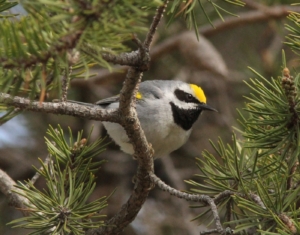
Golden-winged Warbler. Caleb Putnam
In 2024, we selected two ACJV projects for funding:
$150k was awarded to American Bird Conservancy for their project “Delivering private and public lands conservation for forest and shrubland species in the Great Lakes Basin of northern NY,” which will manage at least 200 acres of private forestland to benefit Golden-winged Warbler and other priority species. Their grant will be matched by $37,500.
$150k was awarded to Thousand Islands Land Trust for their project “Habitat Diversity Protection in the St. Lawrence River Valley, Phase 3” for permanently fee protection of 235 acres of wetlands and uplands along Black Lake, adjacent to Lonesome Bay State Forest.
We expect that a Funding Opportunity Announcement (FOA) for FY2025 will be available in the next few weeks and posted at our website (acjv.org/documents/). The link for last year’s FOA (which should be similar to this year’s) is at: www.acjv.org/documents/GLRI-JVFY24_NOFO.pdf
Contact Mitch_Hartley@fws.gov if you have any questions about potential proposals and to confirm your application submission.

